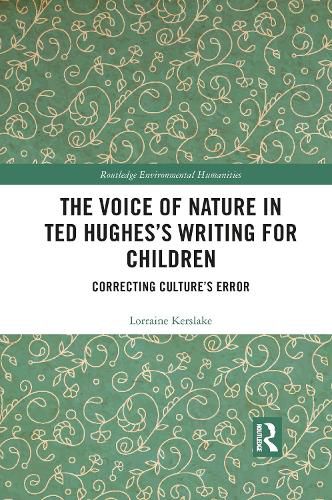Readings Newsletter
Become a Readings Member to make your shopping experience even easier.
Sign in or sign up for free!
You’re not far away from qualifying for FREE standard shipping within Australia
You’ve qualified for FREE standard shipping within Australia
The cart is loading…






Despite the fame Ted Hughes’s poetry has achieved, there has been surprisingly little critical writing on his children’s literature.
This book identifies the importance of Hughes’s children’s writing from an ecocritical perspective and argues that the healing function that Hughes ascribes to nature in his children’s literature is closely linked to the development of his own sense of environmental responsibility. This book will be the first sustained examination of Hughes’s greening in relation to his writing for children, providing a detailed reading of Hughes’s children’s literature through his poetry, prose and drama as well as his critical essays and letters. In addition, it also explores how Hughes’s children’s writing is a window to the poet’s own emotional struggles, as well as his environmental consciousness and concern to reconnect a society that has become alienated from nature.
This book will be of great interest to not only those studying Ted Hughes, but also students and scholars of environment and literature, ecocriticism, children’s literature and twentieth-century literature.
$9.00 standard shipping within Australia
FREE standard shipping within Australia for orders over $100.00
Express & International shipping calculated at checkout
Despite the fame Ted Hughes’s poetry has achieved, there has been surprisingly little critical writing on his children’s literature.
This book identifies the importance of Hughes’s children’s writing from an ecocritical perspective and argues that the healing function that Hughes ascribes to nature in his children’s literature is closely linked to the development of his own sense of environmental responsibility. This book will be the first sustained examination of Hughes’s greening in relation to his writing for children, providing a detailed reading of Hughes’s children’s literature through his poetry, prose and drama as well as his critical essays and letters. In addition, it also explores how Hughes’s children’s writing is a window to the poet’s own emotional struggles, as well as his environmental consciousness and concern to reconnect a society that has become alienated from nature.
This book will be of great interest to not only those studying Ted Hughes, but also students and scholars of environment and literature, ecocriticism, children’s literature and twentieth-century literature.